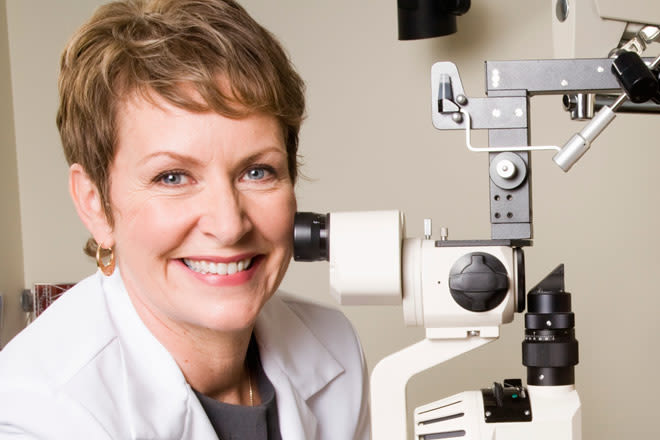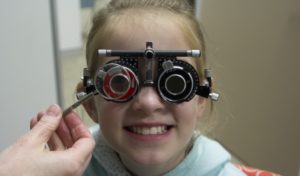Excitement About Amblyopia
Table of ContentsThe Greatest Guide To Eye ExamConjunctivitis - The FactsThe Buzz on Adult & Paediatric Eye SurgeryFascination About Comprehensive Ophthalmology
Eye doctors are medical doctors who specialize in the medical diagnosis and treatment of eye and vision issues. These 3 kinds of eye treatment specialists have instead similar-sounding names as well as overlapping work summaries.They can not give eye tests, create prescriptions, or diagnose or deal with eye troubles. can examine your eyes, examination your vision, prescribe glasses or get in touches with, and identify and treat numerous eye problems as well as conditions. They are not clinical doctors or specialists but can prescribe particular eye-related medicines (https://sites.google.com/view/drcrlinecatt/halaman-muka?read_current=1). also offer eye exams, vision testing, as well as prescriptions for glasses or contact lenses.

Eye doctors identify and also deal with injuries, infections, conditions, and also disorders of the eye. Treatments can include medication taken by mouth (by mouth) or topically (in the eye), surgical procedure, cryotherapy (freeze therapy), as well as radiation treatment (chemical treatment). Ophthalmologists attend medical school then obtain a number of years of specialized training in the medical and medical treatment of the eye.
The Ultimate Guide To Adult Strabismus
As they are the only physician that can deal with all eye problems, eye doctors see a broad selection of eye conditions, including: Just how usually should you have an eye test? What are signs that show you may have an eye issue that requires to be inspected by an optometrist? The American Academy of Ophthalmology suggests: As youngsters's eyes are growing and transforming quickly, they should get a vision testing.
Grownups that have healthy eyes and exceptional vision ought to have 4 comprehensive eye examinations: one in their 20s, 2 in their 30s, and one at age 40. These examinations may permit the eye doctor to capture an eye disease or vision modifications beforehand. By the time you observe signs, you might already have some vision loss (ADULT & PAEDIATRIC EYE SURGERY).

People that are at a higher threat of eye disease might require to get an eye exam a lot more typically. After age 65, your eyes need to be inspected every one to 2 years.
Your view depends on seeing the best eye doctor at the ideal time. When it's time to "obtain your eyes checked," make sure you are seeing the appropriate eye treatment professional for your requirements.
Getting My Conjunctivitis To Work

is a medical or osteopathic medical professional who concentrates on eye and also vision treatment. Ophthalmologists vary from optometrists as well as lens in their degrees of training and in what they can identify and deal with (https://forms.gle/LAfq26cyLqSaSWeL9). As a clinical physician that has actually finished college and at the very least eight years of additional medical training, an ophthalmologist is licensed to practice medicine and also surgical procedure.
Numerous eye doctors are also involved in clinical study on the reasons as well as treatments for eye diseases and also vision conditions. SUBSPECIALISTS: ADDED KNOWLEDGE AND ALSO TRAINING FOR PARTICULAR EYE NEEDS While eye doctors are trained to look after all eye problems as well as conditions, some Eye M.D.s specialize in a particular location of medical or surgical eye care.
He or she typically completes 1 or 2 years of added, extra thorough training called a fellowship in among the major subspecialty locations such as glaucoma, retina, cornea, pediatrics, neurology and also cosmetic surgery, along with others. This added training and knowledge prepares an ophthalmologist take care of more facility or specific conditions in certain areas of the eye or in certain groups of clients.
An optometrist is not a medical doctor. An optometrist receives a medical professional of optometry (OD) degree after completing 4 years of optometry institution, come before by three years or even more years of college. They are licensed to practice optometry, which largely includes performing eye tests as well as vision examinations, suggesting and also dispensing corrective lenses, detecting certain eye abnormalities, as well as prescribing medications for sure eye conditions.
The 3-Minute Rule for Eye Exam
They make use of prescriptions provided by ophthalmologists or optometrists, yet do not examine vision or create prescriptions for aesthetic adjustment (https://www.directorystock.com/author/drcrlinecatt/). Lens are not allowed to identify or treat eye diseases. COMPREHENSIVE OPHTHALMOLOGY.
That's why it is so important to see an eye doctor for a full clinical eye test by age 40, as well as after that as often as recommended by your Eye M.D.
A complete, medical eye test by an Eye M.D. might be the very first step towards saving your view. Bulging of one or both eyes; Dark browse this site curtain or veil that blocks your vision; Lowered vision, also if short-term; Diabetic issues mellitus; Distorted vision; Double vision; Excess tearing; Eyelid abnormalities; Family members history of eye disease; Halos (tinted circles around lights); High blood stress; HIV or AIDS; Injury to the eye; Loss of peripheral (side) vision; Misaligned eyes; New floaters (black "strings" or flecks in the vision) and/or flashes of light; Discomfort in the eye; Thyroid disease-related eye problems (Tomb' illness); Uncommon red eye.